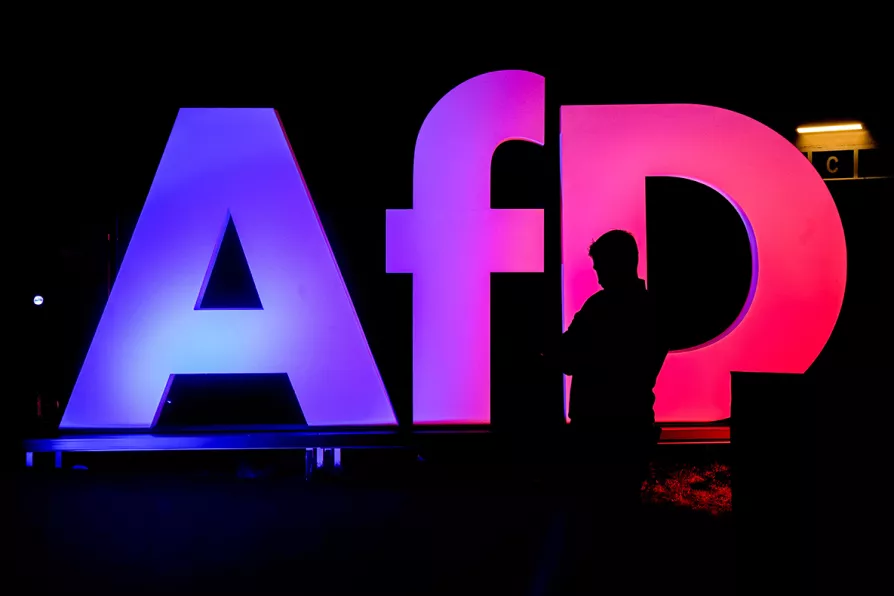As tens of thousands return to the streets for the first national Palestine march of 2026, this movement refuses to be sidelined or silenced, says PETER LEARY

 A man stands in front of the logo at the far-right AfD party headquarters in Berlin, Germany, February 23, 2025, after the German national election
A man stands in front of the logo at the far-right AfD party headquarters in Berlin, Germany, February 23, 2025, after the German national election
WHILE attention is focused on the rise of the right-wing populist Alternative fur Deutschland (AfD) — and liberal opinion in Britain anxiously parses the difference and similarities of this peculiarly German formation with our own home grown Reform UK — the collapse of the Social Democratic Party of Germany (SPD) is the issue exercising Labour MPs.
In the German election the big winner in terms of voter gains is the AfD — with 20.8 per cent it almost doubled its number of voters — while the conservative Christian Democrat/Christian Social Union (CDU/CSU) increased its vote by 4.4 per cent to total 28.6 per cent. This makes its aggressively right-wing leader Friedrich Merz almost certain to replace the SPD’s Olaf Scholz as chancellor.
The SPD clocked up its worst result in a federal election and its largest loss, eventually winning a humiliating 16.4 per cent.

NICK WRIGHT returns to Berlin and finds a city in darkness and political turmoil

In part two of May’s Berlin Bulletin, VICTOR GROSSMAN, having assessed the policies of the new government, looks at how the opposition is faring












